“Religious Authorities Are Partners Of The State”
- Par Eulalia AMABO
- 05 Nov 2018 12:14
- 0 Likes
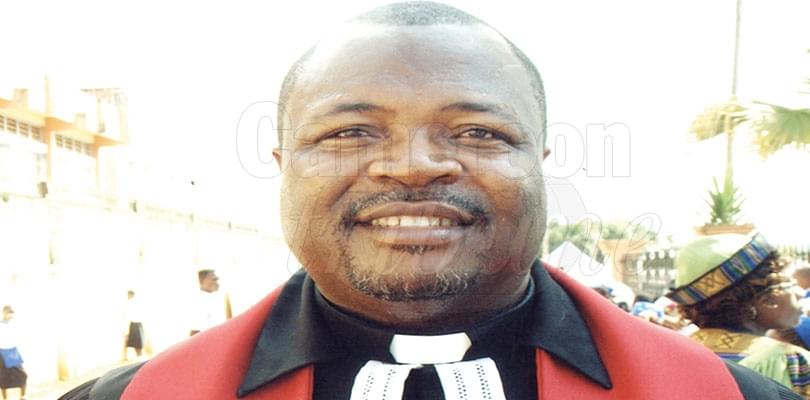
Rt. Rev. Fonki Samuel Forba, President of the Council of Protestant Churches in Cameroon.
Rt. Rev, in your capacity as a religious leader, what are some of the virtues needed to enhance tolerance and promote the culture of peaceful coexistence in Cameroon at this time that the country is witnessing another tenure of office for the Head of State?
To enhance tolerance, there must first of all be acceptance. One must accept that others have the right to existence and to enjoy the blessings and benefits of life like oneself. The first reason for intolerance is denial. When one denies others the right to exist and enjoy life, then one would not accommodate and respect the others. Intolerance which is the opposite of tolerance is the denial of the humanity and dignity of other human beings. Intolerance breeds well in a society where some consider others as sub-humans who have to be dictated to and so receive instructions from the superiors without question. The culture of peace can only be promoted when the leaders themselves create a peaceful environment. Peace is not a philosophy but a way of life that is worked for, beginning with those who wield power and influence over others. Peace is a twin practical term. To promote a culture of peace, there must first of all be justice. The culture of peace cannot be sustained in a country that is built on falsehood and manipulation. Coexistence is not and has never really been a problem in Cameroon. The problem rather is in the promotion and practice of institutional injustice. Cameroonians love each other, irrespective of their linguistic expressions, religions, cultures and tribes. They enjoy these diversities because that makes their country unique. Those who are abusively and openly robbed can hardly have and feel a sense of belonging, no matter how many times you preach coexistence to them.
The two English speaking regions of the country have been experiencing social tension in recent times, what proposals can you give for a return to normalcy?
"A return to normalcy" would mean solving the problem that led to the social tension. For closed to three years today, the Anglophone regions have been restive and now have been in armed conflict for about a year. Many have said that the crisis was completely mismanaged from its early stage and I agree to this. To bring about normalcy is everyone’s desire and what to do is not far-fetched. It is true that a wrong solution to a problem either keeps the problem breeding, or aggravates the problem. That is exactly what is happening with the armed conflict that has taken away thousands of lives, destruction of property, ruined the economy, and the social and educational lives of that community. To bring about normalcy, the government should call for the cessation of war, demilitarize the two Anglophone Regions, call for a release of those arrested within the crisis and initiate an inclusive dialogue that addresses the root cause of the problem. Therefore, there should be a genuine will to engage and solve the problem. Once this is engaged and done, there will be no trouble again. How do you assess efforts by the State and other key actors towards addressing the situation? The State had made some preliminary positive moves worth appreciating, but they were not good and profound enough to solve the problem. To promise a State grant of about FCFA 2 billion to Lay Private Schools nationally was not, in my opinion meant to solve the Anglophone problem. However, the State created the National Commission for the promotion of Bilingualism and Multi-culturalism (NCPBM), which was a welcome move. Mobilising a national fundraising to assist the Internally Displaced Persons (IDPs) could have been a wonderful initiative if the ongoing war had first been stopped, and those arrested released. To be honest, I don't know how effective the State attended to these IDPs, especially those in the bushes in the war zones. It's difficult to talk about other key actors because there is nothing concrete to point at that they did apart from the fact that they have kept calling on the State to engage an inclusive dialogue that addresses the root cause of the problem.
What has been the contribution of religious authorities towards peace and the reconciliation of citizens within the current political context?
Religious authorities are partners of the State for nation-building, especially in the area of morality, promotion of peace, justice, love for one another, the respect of human dignity and the sacredness of human life. Religious institutions then become the conscience of the State and the voice of the voiceless, always identifying with the downtrodden. This distinctive role would normally clash with the State at some point. Religious authorities within Anglophone Cameroon held numerous meetings, came up with joint communiques to pacify the tension. Unfortunately they were misjudged and some of these religious leaders, including myself dragged to court by the State. Notwithstanding, we have continued to preach love, justice, peace and the respect of human life, though looked upon by the State with scorn, on one hand, and suspected by the Restoration Forces of not doing much or rubbing shoulders with the State, on the other hand. The Presbyterian Church in Cameroon (PCC), in particular has organised national retreats, fasting and prayers for divine intervention to bring about a just and peaceful end to this crisis. The Church raised about FCFA 40 million to acquire materials alongside money to attend to the IDPs. The Church is presently afield attending to these unfortunate Brethren living in appalling conditions because of this crisis. Besides the PCC, the P...
Cet article complet est réservé aux abonnés
Déjà abonné ? Identifiez-vous >
Accédez en illimité à Cameroon Tribune Digital à partir de 26250 FCFA
Je M'abonne1 minute suffit pour vous abonner à Cameroon Tribune Digital !
- Votre numéro spécial cameroon-tribune en version numérique
- Des encarts
- Des appels d'offres exclusives
- D'avant-première (accès 24h avant la publication)
- Des éditions consultables sur tous supports (smartphone, tablettes, PC)






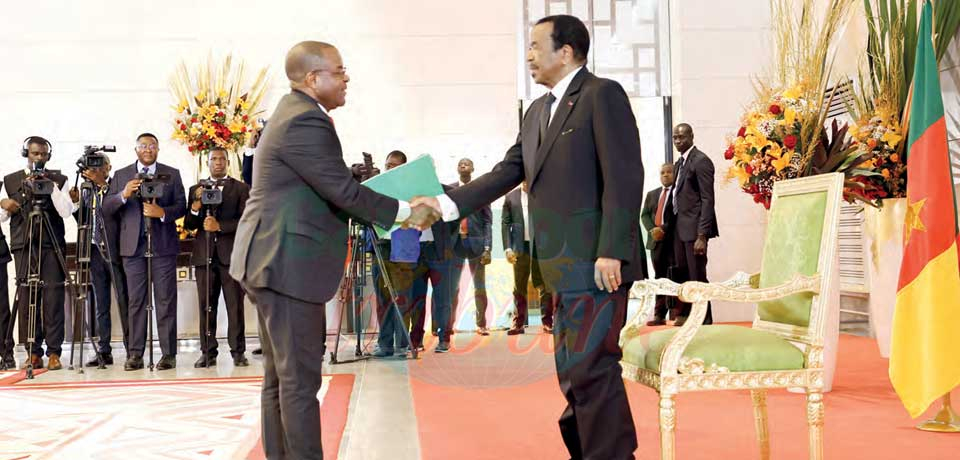
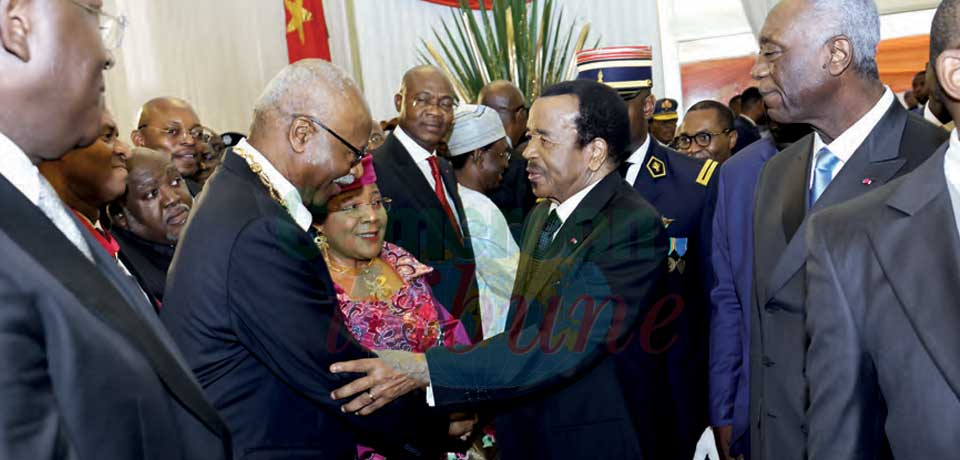
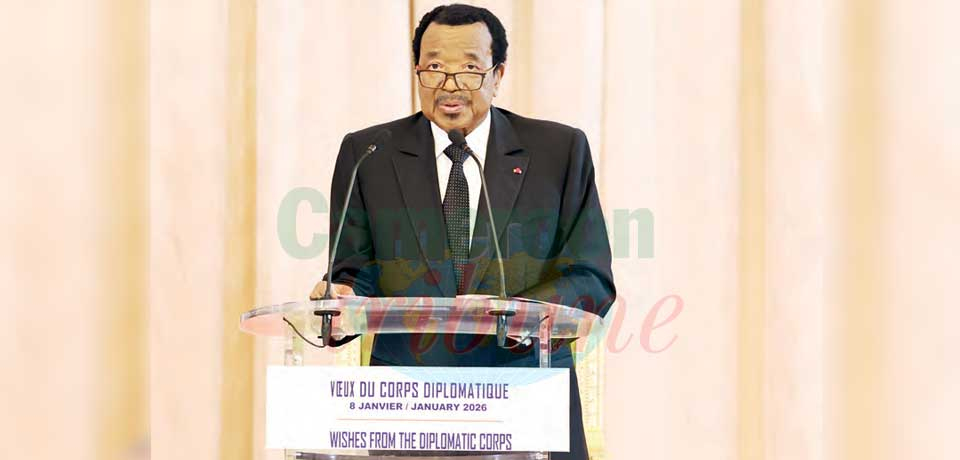
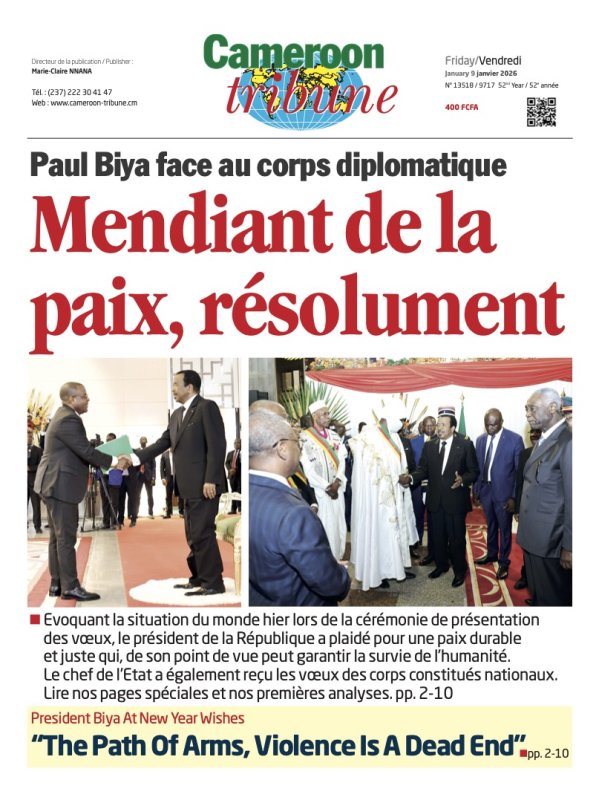




Commentaires